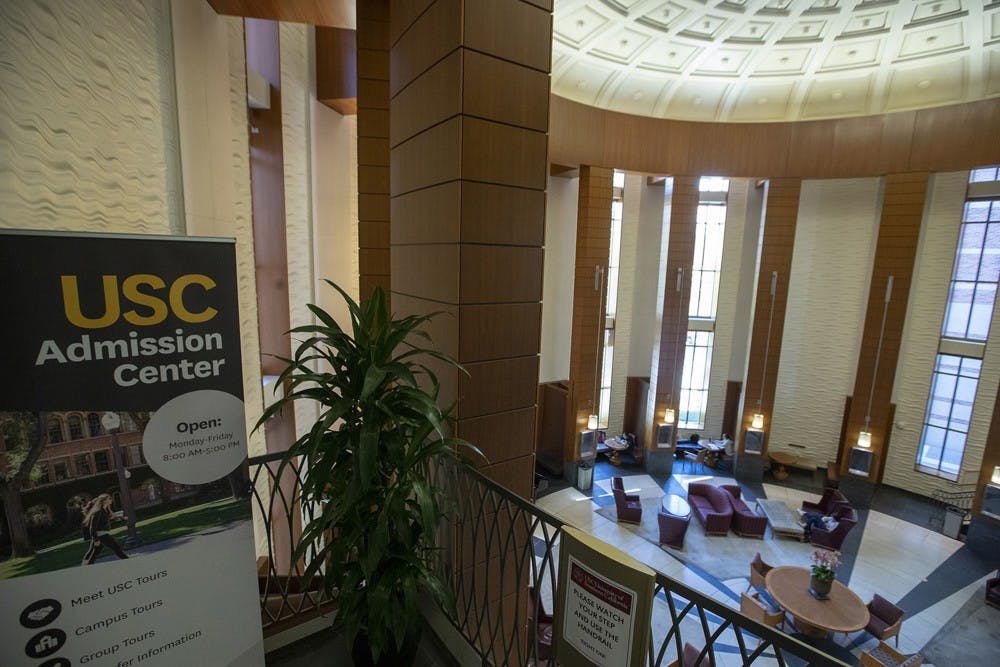By Joel Rubin
Los Angeles Times
LOS ANGELES — Messages sent between the University of Southern California's athletic and admissions offices underscore a truism in college admissions: money talks.
The cache of emails, which were made public Tuesday when an attorney for a father facing charges in the college admissions scandal filed them in court, turn an unsparing light on how the university flags children of possible donors and other influential families for special consideration in the application process.
An attorney for Robert Zangrillo, a Miami financier, filed the internal messages as part of his defense against charges Zangrillo made payments to the admitted mastermind of the admission scheme, William "Rick" Singer, and a Singer associate at USC to sneak his daughter into the school.
In court filings, the attorney, Martin Weinberg, has argued that far from amounting to a crime, the steps Zangrillo took were squarely in line with how USC handles admissions for VIP families.
Weinberg subpoenaed USC for information on all students the university has flagged in recent years as being what the school labels "special interest" and the donations given by their families. USC is fighting the subpoena, calling it in court filings a "fishing expedition" that goes far beyond the scope of Zangrillo's case. In turn, Weinberg filed the emails on Tuesday, in hopes that they persuade a judge to order USC to comply with his demand for records.
If turned over, Weinberg wrote in a court filing, the records would "prove the existence of a university-wide program at USC ... where past donations, pledges of future donations, or expectation of future donations based on the university's belief in a parent's resources deeply affects the chances for a prospective student's admission as does a variety of factors other than just grades and test scores, including recommendations on the prospective student's behalf by persons of power, wealth, or position in the USC community, past or present."
In a statement, a spokeswoman for USC said the school has made no secret of the fact that it allows officials across its campus to flag applicants for special attention, but said the office of admissions alone decides which students are admitted to the selective university.
"Mr. Zangrillo's filing appears to be part of a legal and public relations strategy to divert attention from the criminal fraud for which he has been indicted by a federal grand jury. USC remains confident that the court will agree with us that it need not produce the information and documents requested by the defendant."
The emails clearly show USC officials discussed potential donations from the parents of applicants. But it's unclear exactly what role that played in decisions.
The head of the USC admissions office said in a court filing that admissions decisions were not influenced by donations.
The legal fight has only increased the scrutiny on USC, which is at the center of the sprawling college admissions scandal. In March, federal prosecutors in Boston unveiled charges against dozens of parents, including actresses, tech figures and corporate power brokers, accusing them of hiring Singer to bribe and cheat their children into elite colleges.
While Singer had toeholds on numerous campuses, USC stands out: Four members of the school's athletic department and 19 parents of USC students were charged in the case.
They include actress Lori Loughlin. Loughlin and her husband are accused of paying $500,000 to have their two daughters admitted to USC as recruits to the school's crew team despite not being competitive athletes in the sport. Though neither is a rower, the parents saw being a coxswain as their daughters' ticket into the private college, according to an affidavit filed in federal court.
To ensure his daughter, Amber, was admitted to USC, prosecutors say, Zangrillo paid $200,000 to Singer, a Newport Beach college admissions consultant, and $50,000 to an account controlled by Donna Heinel, a top USC athletics administrator. Zangrillo has pleaded not guilty to charges of fraud conspiracy and money laundering conspiracy.
Singer is the admitted linchpin of a sprawling, nearly decadelong scheme to fix college entrance exams for the children of his wealthy clients and misrepresent them to universities as recruited athletes. He pleaded guilty to four felonies in March and cooperated with federal prosecutors in Massachusetts who uncovered his scam. Heinel, who has pleaded not guilty to charges of racketeering conspiracy, was fired from her post when she was arrested.
Heinel, who served as the athletic department's liason with the school's admissions office, wrote many of the emails made public Tuesday. Other emails were authored by development officers at USC who develop relationships with wealthy families in hopes of persuading them to make large donations to the school.
In one exchange in 2014, Heinel notified several development officers that the son of a wealthy family had been admitted to the school as a water polo player. The development officers then discussed how much money the family could be expected to give, with one saying they were "a high level prospect with 1-5M potential," presumably referring to a donation between $1 million and $5 million.
After the family seems to not make a donation, Heinel offers to "have Admissions pull the approval" for the boy to attend USC. A development officer declines the officer, writing, "really sucks don't pull we will guilt them."
Nina Marino, Heinel's attorney, said in a statement that the emails underscore "an aspect of USC admission that was directly linked to donations."
Heinel, she said, "did not create this system" and did work that was in line with the expectations of the athletic directors she worked under.




